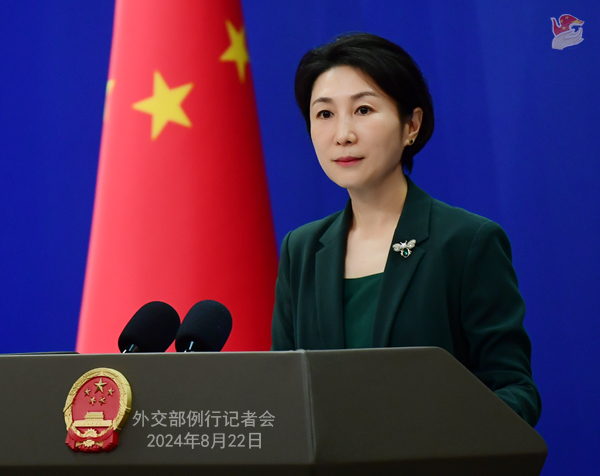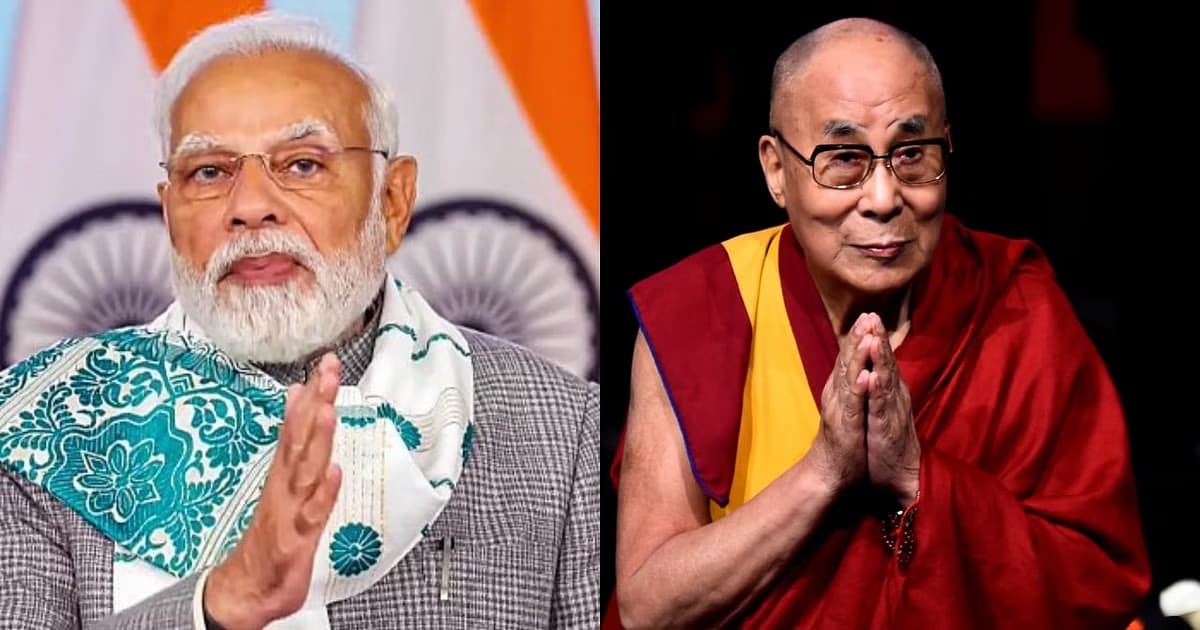China has escalated its rhetoric against India after Prime Minister Narendra Modi publicly wished the Dalai Lama a happy 90th birthday, a move that underscores the fragility of Sino-Indian relations. The Chinese government’s swift condemnation reflects its deep-seated concerns over what it perceives as India’s interference in its internal affairs, particularly regarding Tibetan autonomy.
Beijing"s Alarm Over Modi"s Message
According to Bloomberg, China’s Foreign Ministry spokesperson Mao Ning stated that India should “see clearly the anti-China and separatist nature of the 14th Dalai Lama” and urged New Delhi to halt its interference. This reaction comes on the heels of a brief thaw in relations between the two nations following a series of deadly border clashes in 2020.
Modi"s greeting to the Dalai Lama serves not only as a diplomatic gesture but also as a reflection of India"s support for Tibetan self-determination. The Dalai Lama, a revered spiritual leader, has lived in India since fleeing Tibet in 1959, following China"s annexation of the region. His birthday wishes from Modi, who described the Dalai Lama as a symbol of “love, compassion, patience and moral discipline,” starkly contrast with Beijing"s view of him as a separatist.
Historical Context of Tensions
India has hosted the Tibetan government-in-exile for over six decades, creating a persistent source of friction with China. The question of the Dalai Lama"s succession is particularly contentious, with Beijing asserting that it has the right to determine how the spiritual leader"s reincarnation should unfold, claiming it must adhere to Chinese laws and regulations. This stance directly contradicts India"s position that it does not interfere in religious matters, further complicating the relationship.
Implications for Diplomacy
As reported by The New Indian Express, the Chinese ambassador to India, Xu Feihong, emphasized that the reincarnation and succession of the Dalai Lama is an internal affair for China. This rhetoric indicates a hardening of Beijing"s position and suggests that any perceived support for the Dalai Lama by Indian officials will be met with swift diplomatic backlash.
The recent interactions between the two nations highlight the delicate balance of power in the region. India’s Defense Minister Rajnath Singh had just visited China last month, marking the first such visit in five years, intended to mend ties after military clashes. However, Modi"s public acknowledgment of the Dalai Lama has now reignited tensions that could derail potential diplomatic progress.

Foreign Ministry Spokesperson Mao Ning’s Regular Press Conference on ...
Domestic Reactions in India
Within India, Modi"s gesture has received widespread support, particularly from those aligned with the progressive movement advocating for human rights and the recognition of Tibetan autonomy. The Dalai Lama"s message of peace and compassion resonates deeply within India’s diverse religious landscape, reinforcing the country’s commitment to its role as a sanctuary for those fleeing persecution.
However, this support is not without its critics. Some fear that Modi’s overtures could provoke further retaliatory measures from China, which has already shown a willingness to leverage its economic might in response to diplomatic slights. The delicate nature of India-China relations necessitates a careful approach, balancing national pride and the imperative of maintaining stability in a region marked by historical animosities.
Future Outlook
The escalating situation surrounding the Dalai Lama’s status is likely to remain a flashpoint in Sino-Indian relations. With both nations navigating the complexities of their geopolitical ambitions, the prospect of a peaceful resolution appears increasingly fraught. Continued diplomatic engagements will be crucial, yet the underlying tensions regarding Tibet and the Dalai Lama’s influence may overshadow any positive developments.
As both countries attempt to manage their bilateral relations, the international community must remain vigilant. The implications of this spat extend beyond mere diplomatic niceties; they touch on larger issues of human rights, religious freedom, and cultural autonomy that resonate across borders. The world is watching as India and China grapple with these profound challenges.


![[Video] Heavy clashes and gunfire reported in Baghdad, Iraq](/_next/image?url=%2Fapi%2Fimage%2Fthumbnails%2Fthumbnail-1768342239932-848qsh-thumbnail.jpg&w=3840&q=75)




![[Video] Gunfire between Iraqi security forces and Sadr militias in Baghdad](/_next/image?url=%2Fapi%2Fimage%2Fthumbnails%2Fthumbnail-1768343508874-4redb-thumbnail.jpg&w=3840&q=75)
